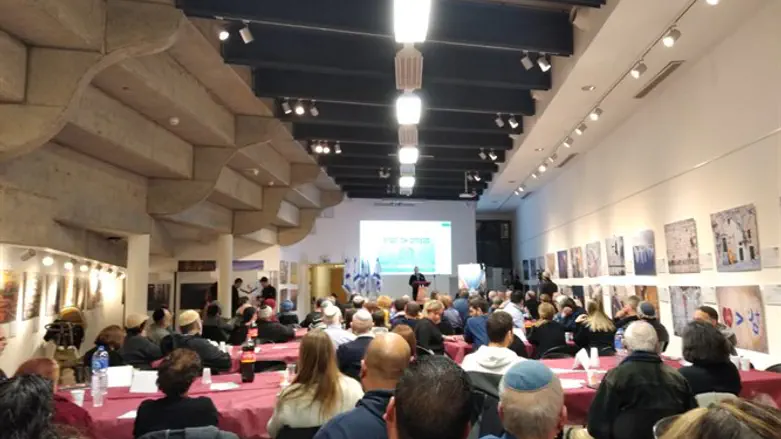
"A time to give birth and a time to die; a time to plant and a time to uproot that which is planted." (Book of Ecclesiastes, Chapter 3, verse 2).
Every individual, nation, and culture has an “expiration date."
Unlike an individual, a nation and culture can postpone their expiration dates for great lengths of time through proper conduct, because they are essentially an intergenerational relay race where the baton keeps being handed off. As long as they work efficiently to preserve their spirit and belief in the justness of their cause, there is no reason why they should collapse.
Famed 14th century historian Ibn Khaldun identified a cycle pertaining to the rise and fall of a state, which consists of five stages: conquest, social cohesion, expansion, contentment, and decline.
Over the course of history, farming societies were conquered by nomadic warrior tribes, who claimed the lands for themselves. The success of these tribes in managing and developing their newly conquered land and subjects relied on their social cohesion.
As time passed on, their descendants became less attached to the ethos on which the society was formed, weakening them from within. This decline in collective self-awareness led to their eventual disappearance, usually by conquest from a force stronger and more focused than themselves.
Long before Ibn Khaldun, Moses fully understood the dangers posed by an erosion of the ethos on which his society was built. In the Book of Deuteronomy, Moses notes: "Beware, lest you forget the Lord, Who brought you out of the land of Egypt, out of the house of bondage." Forgetting the Lord of course entailed all that He had commanded and taught Israel to do in order to maintain their national awareness and internal strength.
Today, there is widespread concern that the West has forgotten, discarded or, disparaged the Judeo- Christian values that made it the leading culture and the strongest nations in the world.
A glaring example of this is the significance of the mass Arab immigration to Europe.
How else is one to explain the phenomenon in which a liberal society that cherishes individual dignity and the freedom of expression welcomes with open arms many who declare their wish to implement Sharia law, which would be a complete negation of the values of its hosts?
The more one studies the current reality of Europe, the more difficult it is to dispute that it is currently poised in the second portion of the stages of Ibn Khaldun's five staged-cycle: contentment, decline, and conquest.
While the underlying circumstances might differ, there are strong parallels in both America and Israel, each of which is struggling with forces that would happily destroy the institutions and the values that made each nation strong, humane, and vibrant.
While such forces are cloaked in the wrappings of “progress,” “reform,” and “human rights,” they are intensely destructive to the nations that have sanctioned the very hatred that now threatens them.
Exhorting your citizens to stay true, to conserve and preserve their values and traditions seems much less exciting than change, even change for its own sake. Of course throughout the ages, there has also been push back, with powerful voices warning societies against their self-destructive trajectory.
Of course throughout the ages, there has also been push back, with powerful voices warning societies against their self-destructive trajectory.
Unfortunately, such figures have always been significantly disadvantaged by the allure and romance of change, especially revolutionary change. Simply stated, exhorting your citizens to stay true, to conserve and preserve their values and traditions seems much less exciting than change, even change for its own sake.
Such change is also very tempting at first because it creates feelings of social unity, unity for change, and also for condemning those who have dared to defend the traditional norms of society.
There is however, one important instance when conservative and traditional forces can rally widespread national support: when foreign invaders threaten to conquer and to overrun a nation. At such a time, it is the conservative and traditional groups, movements and voices that can wield tremendous influence as active patriotic agents of defense. These are typically not the graybeard thinkers, but the younger generations that understand the threat, and are intent on defeating it.
At such times, conservative young “doers” can be as appealing and attractive as their revolutionary contemporaries. Such agents have imbibed and reflect the wisdom of their conservative elders, but combine it with action steps that can energize a society.
Take for example Turning Point USA which has had a strong impact on US campuses, where it reflects the wisdom of conservative thinkers such as Allan Bloom, Thomas Sowell, Milton Friedman, and Jordan Peterson.
In Israel, my own organization, Im Tirtzu, has developed a strong grassroots following on Israel’s campuses, reflecting the iconic values of Herzl, Jabotinsky and Ben-Gurion, but also the wisdom of contemporary thinkers such as Rabbi Benny Lau, Daniel Pipes, Asaf Malach, Yoram Hazony, Ran Baratz, Ronen Shoval and Mordechai Kedar.
Combining time-tested wisdom with on the ground activism might be the West’s best hope for pushing its national expiration dates far away from the present..
The writer is the CEO of Im Tirtzu
